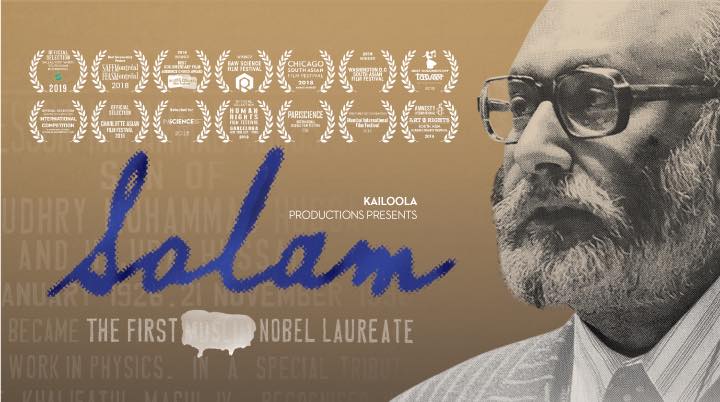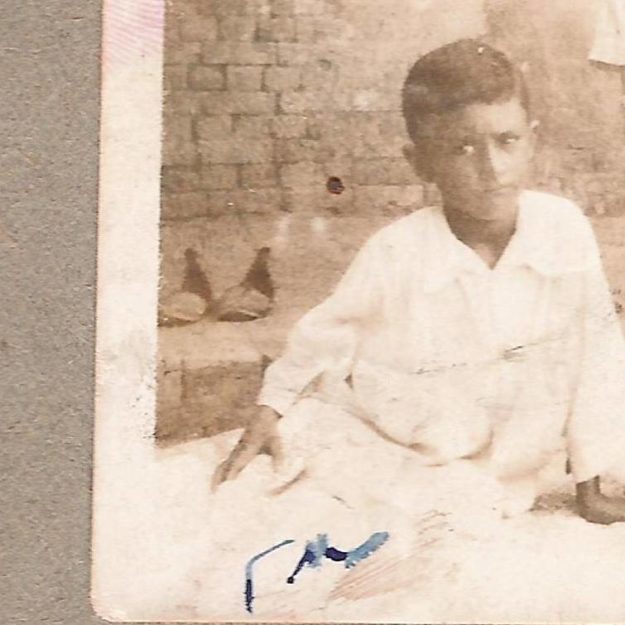
There is no doubt Dr Abdus Salam’s story is one for the ages. The contrast between the plaudits and respect he won among intellectual minds the world over and the cold shoulder he received and continues to receive from his home country has all the makings of an epic tragedy. This very theme forms is what the makers of Salam have chosen as their central thesis. As one talking head puts it, Dr Salam cuts a very tragic figure but then that was his greatness.
The documentary plays out in linear fashion. After a brief teaser on Dr Salam’s titanic intellectual reputation and the tragedy that was ultimately in store for him to set the tone, the film takes us through his life in chronological order.
Abdus Salam was a hero of science. He should have been celebrated as Pakistan’s greatest son. Instead he was shamefully ill-used by that country’s ignorant religious leaders. This film is a movingly sensitive treatment of a wonderful world citizenhttps://t.co/0EUmubVLjQ
— Richard Dawkins (@RichardDawkins) October 2, 2019
The narrative properly begins with the Nobel laureate’s childhood and youth, and the prodigy he had shown signs of before he even exited his teen years. It then takes us through his dazzling scientific career, narrated by the many academics who worked alongside him. Through the eyes of his peers and his family members, we get the most intimate look into the inner workings of Dr Salam’s mind and personality.
His unorthodox academic approach and his approach to reconciling science with his religious beliefs sketch out a complex character rich in both contradiction and poetry. This exploration of the man behind Dr Salam may well be the documentary’s biggest accomplishment.
As with any film, however, there are some aspects where it falls short. For starters, although it is undoubtedly rich in subject matter, the documentary does not actually break any new ground in terms of narrative or film-making craft. With its linear narrative structure, the film follows a rather predictable trajectory reminiscent of most other works in the genre.

There is also the rather questionable choice the documentary makes by singling out Sunni Muslims as opponents to the Ahmadiyya community Dr Salam was part of. It is true that Sunni Islam dominates the cultural fabric of Pakistan and as such is at the heart of the hegemony in the country, but what the film ignores is that all mainstream Islamic sects have been united in opposition to Ahmadis.
One can see why the choice was made since in recent times almost all minority sects have been targeted by religious violence. This something the documentary makes explicit by highlighting the massacre of Ismaili community members in Karachi and the attacks on Hazaras in Quetta. At the same time, it does present a rather skewed view of a complex religio-political reality.
Salam is also rather short on talking heads from within the Ahmadi community when it comes to exploring the violence and discrimination its members have faced, an aspect which is very much at the heart of the Nobel laureate’s tragedy.
Still, in spite of these few aspects where it could have been much stronger, the documentary is a triumph nonetheless. Dr Salam’s is a story that has long deserved to be told on the grandest possible stage and that is something the makers of the film have achieved. One cannot help but see Salam in light of Pakistan’s current predicament and the craving for heroes its people often display.
The entire tragedy is reminiscent of an exchange in the play The Life of Galileo, where the titular scientist is confronted by a dejected disciple of his. “Unhappy is a land that breeds no heroes,” says the student, only to be told by Galileo that “Unhappy is a land that is in need of heroes.” It appears Pakistan is doubly unhappy, seeing as how it is in need of heroes despite breeding them.
The film is now available for streaming on Netflix.
Rating: ****
Have something to add to the story? Share it in the comments below.
1719315628-0/BeFunky-collage-(8)1719315628-0-405x300.webp)


1731329418-0/BeFunky-collage-(39)1731329418-0-165x106.webp)













COMMENTS
Comments are moderated and generally will be posted if they are on-topic and not abusive.
For more information, please see our Comments FAQ